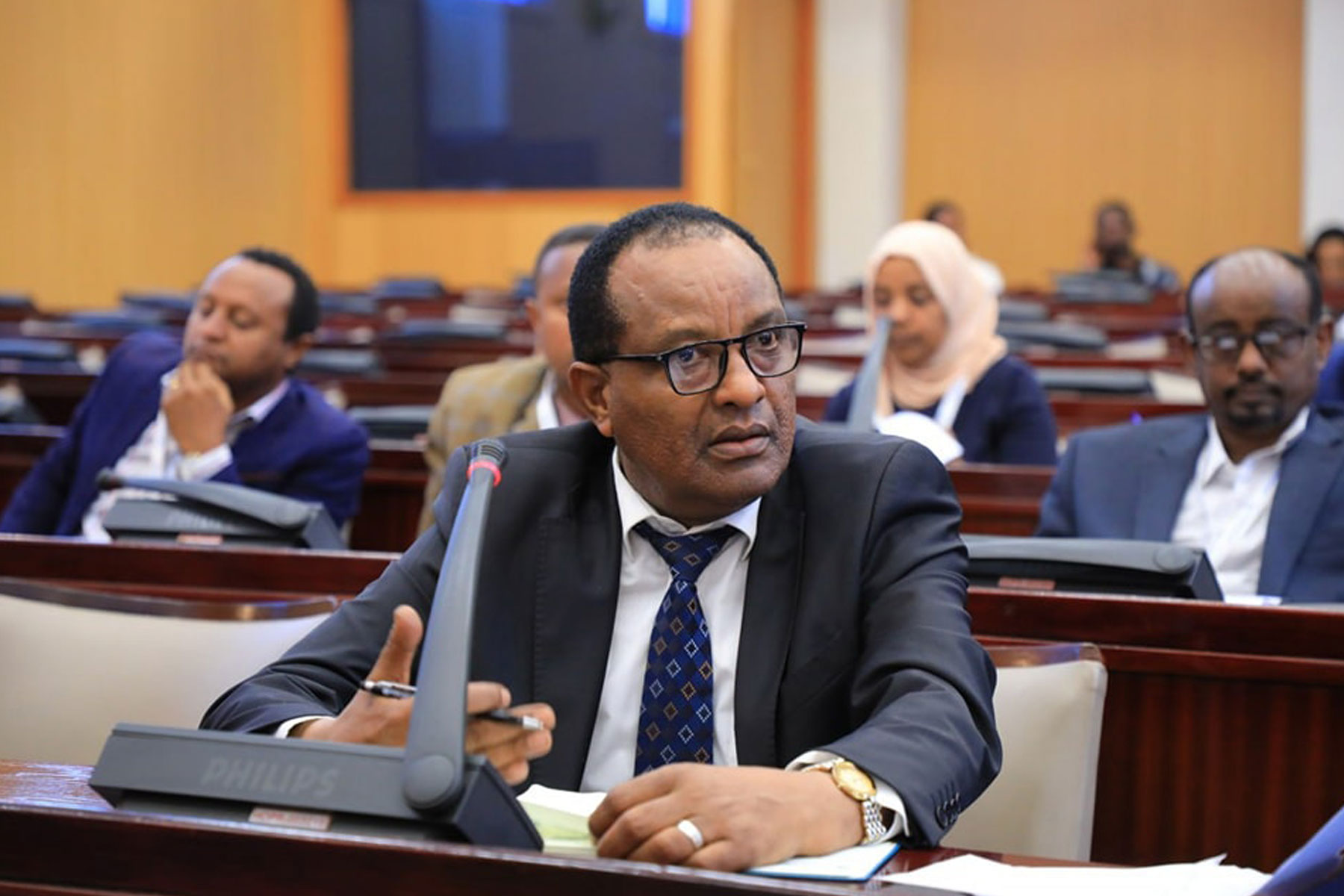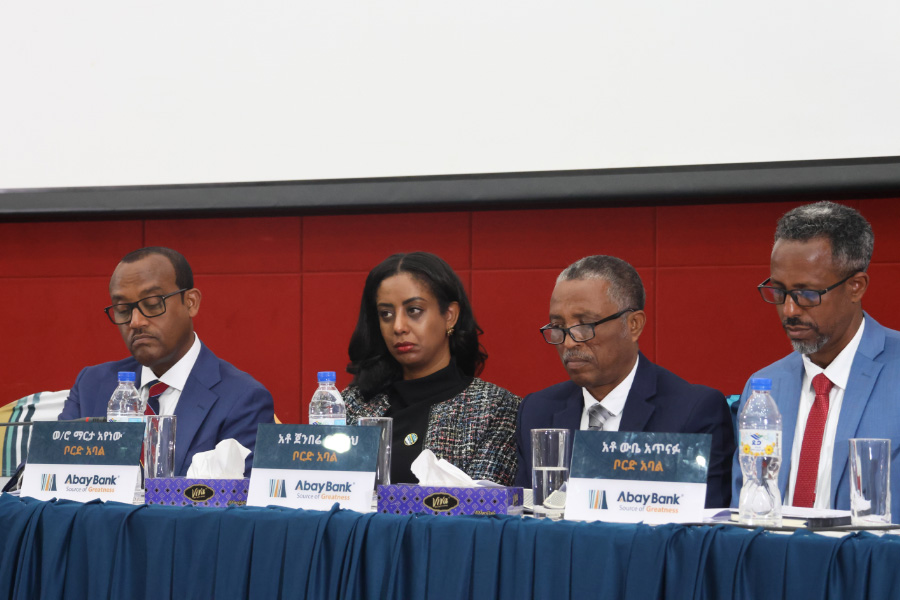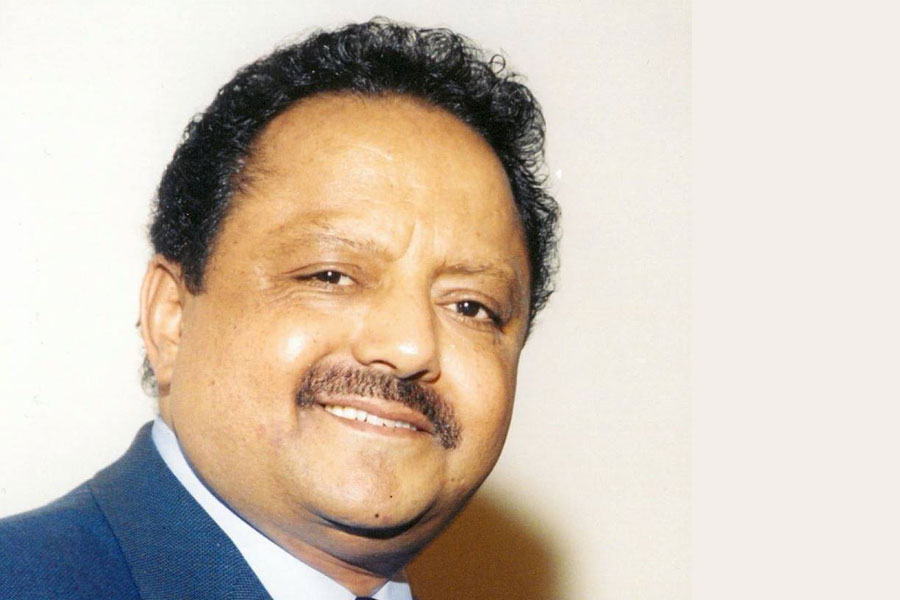
Commentaries | Feb 24,2024
Beyene Petros (Prof.) was a familiar figure in the quiet halls of Addis Abeba University, where sunlight filtered through arching eucalyptus trees. He mentored generations of students with a warm smile and a gentle demeanour, urging them to question conventions and seek truths beyond textbooks. Yet, beneath this serene exterior lay a man shaped by profound personal loss and an unwavering commitment to his country's fate.
His life's web was interwoven with that of his brother, Bezabih Petros (Col.), a celebrated fighter pilot whose fate became one of Ethiopia's lingering mysteries. On July 6, 1998, at the start of the brutal two-year war with Eritrea, Bezabih's MiG-21 jet was shot down over Asmara. He ejected safely but was captured by Eritrean forces. Eritrean officials never accounted for his whereabouts despite international conventions and desperate appeals. The unresolved disappearance weighed heavily on Beyene, deepening his empathy and fueling his determination to serve others.
Bezabih was no stranger to peril. During Somalia's invasion of Ethiopia in 1977, he became a national hero after shooting down an American-made fighter jet, helping to repel U.S.-armed Somali forces. He was captured by Eritrean forces when they were insurgents battling the military government; he was released later. His legacy endures in Hossana, their hometown in the Hadiya zone, where a monument and a roundabout bear his name. At the monument's inauguration, attended by prominent figures, including Beyene, the absence of Bezabih was a poignant reminder of the personal costs of wars.
Born in 1950, Beyene pursued education with the same fervour his brother showed in the skies. He graduated from Haile Selassie I University — now Addis Abeba University — in 1973, a year before the revolution that brought down the Emporer. His quest for knowledge led him to the University of Wisconsin-Madison for postgraduate studies and culminated in a doctoral thesis on tropical diseases and public health from Tulane University. Over his academic career, he published more than 120 scientific articles in peer-reviewed journals and co-authored the textbook, "Basic Principles of Biology."
At Addis Abeba University, Beyene was more than a lecturer; he was a voice of critical thinking. Former students recall how he challenged them to look beyond established norms.
One remembered, "He wanted us to question everything and seek the truth."
His influence extended beyond academia into personal development. Despite a demanding career, he was always present for his family.
"No matter how busy he was, he helped with homework and engaged in deep conversations about life and relationships," his son, Ermisha, recalled.
He believed his 47-year marriage to his wife, Tihun, was the footing of his life. Together they raised four children and became grandparents to 10. Their partnership was marked by mutual support and thoughtful gestures. Friends often remembered how he would eagerly pick her up from night classes or surprise her with tokens of appreciation.
Beyene's ability to connect with people extended beyond his family. He was the unifying figure at gatherings, his humour and lighthearted banter putting others at ease. Believing in the power of generosity, he lived by the principle of "paying it forward," touching many lives without seeking recognition.
This ethos naturally led him into the turbulent - and often deadly - waters of Ethiopian politics. Following the fall of the Marxist-military Derg regime in 1991, Beyene joined the transitional government under Meles Zenawi as Deputy Minister of Education. However, his tenure was short-lived. His attendance at an opposition coalition in the United States provoked the ire of the ruling party, resulting in his expulsion from the council formed to lead the transitional government. Undeterred, he proved his mettle by persisting in his advocacy for democracy and good governance.
Running on an opposition platform, he won a seat in the first parliament after 1995, representing his constituency in Hadiya. Constituents and comrades admired his steadfast commitment to democratic principles and his courage in standing up for justice. Unafraid to challenge the status quo, he consistently voiced the need for transparency and accountability in government during his parliamentary appearances.
He often said, "A society flourishes when its citizens are empowered and informed," encapsulating his belief in civic engagement.
A minimalist at heart, Beyene found joy in simple pleasures. Walks with family, immersing himself in a good book, or watching a competitive football match were his refuges. Literature exploring themes of justice and humanity shaped his worldview and enriched his conversations. Often, he shared life lessons casually, leaving those around him with insights that resonated deeply.
In his final years, Beyene was appointed by Prime Minister Abiy Ahmed (PhD) to lead the Policy Studies Institute, a federal agency. Noteworthy contributions marked his tenure. He was instrumental in enhancing the Institute's mission, promoting ethical research practices, and empowering junior researchers. His vision for a data repository system, a project nearly completed at his passing, demonstrated his unwavering commitment to advancing knowledge and encouraging collaboration. He understood the critical role of data in shaping policies and took great care in mentoring young scholars.
Colleagues admired his meticulous nature and ability to remember minute details about their work and personal lives. He embodied the essence of a "servant leader", always ready to lend a helping hand and inspire those around him.
"He believed leadership should not be only about authority but about service," a colleague noted.
Despite numerous accolades and achievements, humility remained one of his defining characteristics. Those who knew him remember how he treated everyone with respect and dignity, regardless of their status.
"He made everyone feel at ease," his son said, recalling his father's natural ability to connect with anyone. "He reminded us that the greatest legacy one can leave behind is the positive impact they have on others."
Beyene's life illustrated this philosophy. His ability to bridge divides and encourage understanding left an indelible mark on those he encountered.
On September 17, 2024, Beyene passed away, receiving medical care overseas, leaving a void in academia and politics. His death marked the end of an era but also served as a reminder of the values he championed. In the classrooms of Addis Abeba University, his teachings continue to inspire. In the halls of government, his calls for transparency and accountability echo still.
PUBLISHED ON
Sep 29,2024 [ VOL
25 , NO
1274]

Commentaries | Feb 24,2024

Commentaries | Aug 25,2024

Fortune News | Dec 15,2024

Delicate Number | Sep 28,2024

View From Arada | Jul 17,2022

In-Picture | Aug 30,2025

Fortune News | Apr 28,2024

Radar | Nov 24,2024

Obituary | May 03,2024

Fortune News | Aug 17,2019

Dec 22 , 2024 . By TIZITA SHEWAFERAW
Charged with transforming colossal state-owned enterprises into modern and competitiv...

Aug 18 , 2024 . By AKSAH ITALO
Although predictable Yonas Zerihun's job in the ride-hailing service is not immune to...

Jul 28 , 2024 . By TIZITA SHEWAFERAW
Unhabitual, perhaps too many, Samuel Gebreyohannes, 38, used to occasionally enjoy a couple of beers at breakfast. However, he recently swit...

Jul 13 , 2024 . By AKSAH ITALO
Investors who rely on tractors, trucks, and field vehicles for commuting, transporting commodities, and f...

Oct 25 , 2025
The regulatory machinery is on overdrive. In only two years, no fewer than 35 new pro...

Oct 18 , 2025
The political establishment, notably the ruling party and its top brass, has become p...

Oct 11 , 2025
Ladislas Farago, a roving Associated Press (AP) correspondent, arrived in Ethiopia in...

Oct 4 , 2025
Eyob Tekalegn (PhD) had been in the Governor's chair for only weeks when, on Septembe...